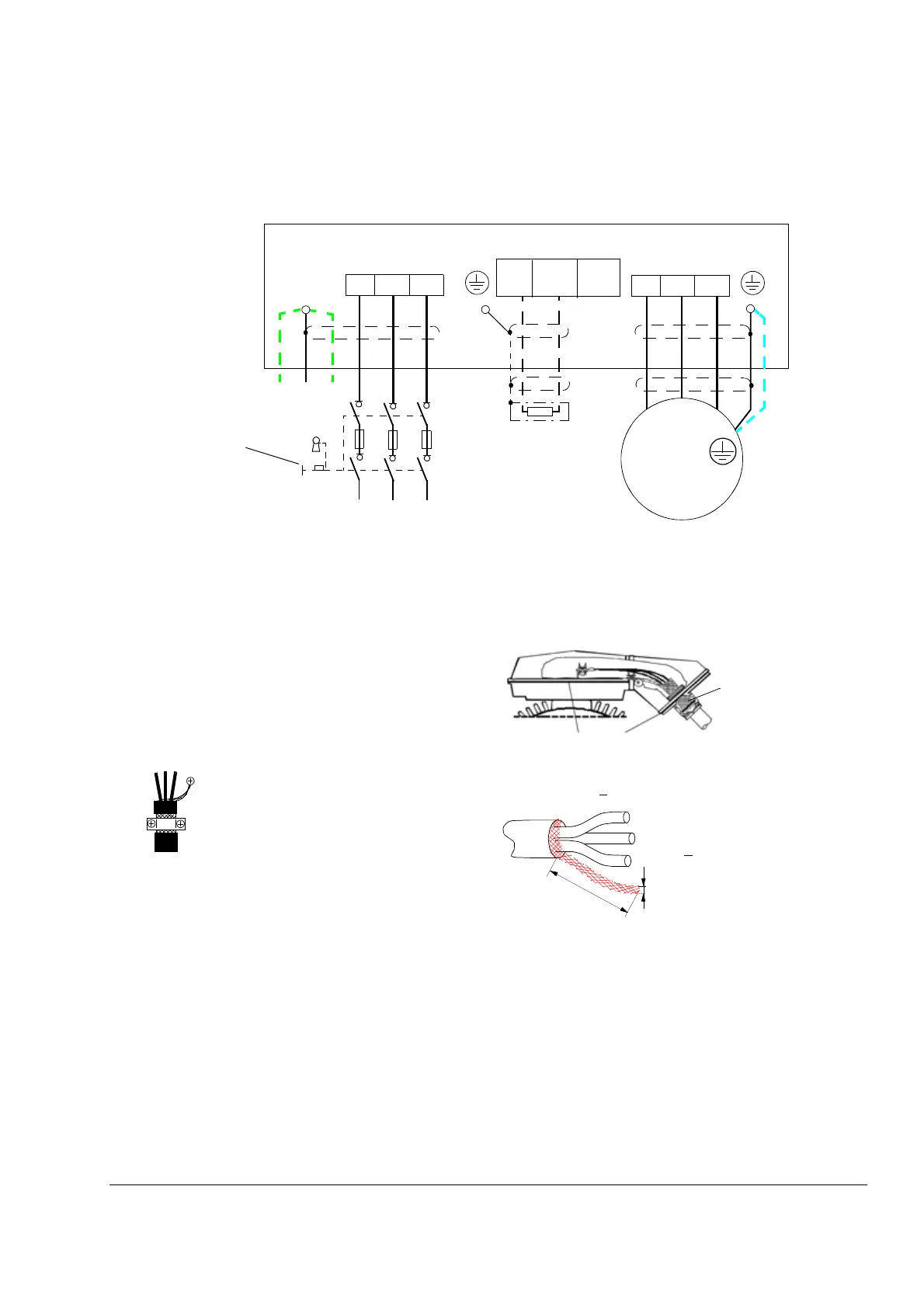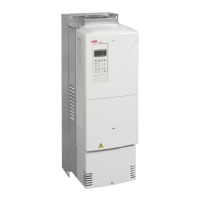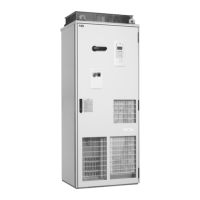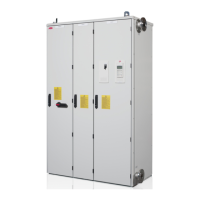INPUT
OUTPUT
U1
V1
W1
3 ~
Motor
U1
V1 W1
1)
U2
V2 W2
UDC+
R+
UDC
-
R-
L1 L2 L3
(PE) (PE)PE
2)
5)
4)
4)
3)
Drive
PE
For alternatives, see
Planning the electrical
installation:
Disconnecting device
External brake
resistor
Grounding of the motor cable shield at the motor end
For minimum radio frequency interference:
• ground the cable shield 360 degrees at the lead-through of
the motor terminal box
• or ground the cable by twisting the shield as follows:
flattened width >
1/5 · length.
1), 2)
If shielded cable is used (not required but
recommended), use a separate PE cable (1) or a
cable with a grounding conductor (2) if the
conductivity of the input cable shield is < 50% of the
conductivity of the phase conductor.
Ground the other end of the input cable shield or PE
conductor at the distribution board.
3) 360 degrees grounding recommended if shielded
cable
4) 360 degrees grounding required
5) Use a separate grounding cable if the conductivity of
the cable shield is < 50% of the conductivity of the
phase conductor and there is no symmetrically
constructed grounding conductor in the cable (see
Planning the electrical installation: Selecting the
power cables).
Note:
If there is a symmetrically constructed grounding
conductor in the motor cable in addition to the
conductive shield, connect the grounding conductor to
the grounding terminal at the drive and motor ends.
Do not use an asymmetrically constructed motor cable
for motors > 30 kW (40 hp). Connecting its fourth
conductor at the motor end increases bearing currents
and causes extra wear.

